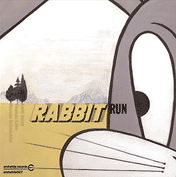
Out of Stock
Quantity in Basket: None
Log In to use our Wish List
Shipping Weight: 5.00 units
Sample The Album:
Keith Rowe-tabletop guitar, electronics
Thomas Lehn-analogue synthesizer
Marcus Schmickler-digital synthesizer, computer
Click an artist name above to see in-stock items for that artist.
Label: erstwhile
Catalog ID: erstwhile 027
Squidco Product Code: 1643
Format: CD
Condition: New
Country: USA
Packaging: Jewel Tray

The Squid's Ear!
Artist Biographies
• Show Bio for Keith Rowe "tabletop guitarist and painter. Rowe is a founding member of both the influential AMM in the mid-1960s (though in 2004 he quit that group for the second time) and M.I.M.E.O. Having trained as a visual artist, Rowe's paintings have been featured on most of his own albums. After years of obscurity, Rowe has achieved a level of relative notoriety, and since the late 1990s has kept up a busy recording and touring schedule. He is seen as a godfather of EAI (electroacoustic improvisation), with many of his recent recordings having been released by Erstwhile Records. Rowe began his career playing jazz in the early 1960s-notably with Mike Westbrook and Lou Gare. His early influences were guitarists like Wes Montgomery, Charlie Christian and Barney Kessel. Eventually, however, Rowe grew tired of what he considered the form's limitations. Rowe began experimenting, slowly and gradually. An important step was a New Year's resolution to stop tuning his guitar-much to Westbrook's displeasure. Rowe gradually expanded into free jazz and free improvisation, eventually abandoning conventional guitar technique. This change in his approach to guitar, Rowe reports, was partly inspired by a teacher in one of his painting courses who told him, "Rowe, you cannot paint a Caravaggio. Only Caravaggio can paint Caravaggio." Rowe reports that after considering this idea from a musical perspective, "trying to play guitar like Jim Hall seemed quite wrong." For several years Rowe contemplated how to reinvent his approach to the guitar, again finding inspiration in visual art, namely, American painter Jackson Pollock, who abandoned traditional painting methods to forge his own style. "How could I abandon the technique? Lay the guitar flat!" Rowe developed various prepared guitar techniques: placing the guitar flat on a table and manipulating the strings, body and pick-ups in unorthodox ways to produce sounds described as dark, brooding, compelling, expansive and alien. He has been known to employ objects such as a library card, rubber eraser, springs, hand-held electric fans, alligator clips, and common office supplies in playing the guitar. A January 1997 feature in Guitar Player magazine described a Rowe performance as "resemble a surgeon operating on a patient." Rowe sometimes incorporates live radio broadcasts into his performances, including shortwave radio and number stations (the guitar's pick-ups will also pick up radio signals, and broadcast them through the amplifier). AMM percussionist Eddie Prévost reports that Rowe has "an uncanny touch on the wireless switch", able to find radio broadcasts which seem to blend ideally with, or offer startling commentary on, the music. (Prévost, 18). On AMMMusic, towards the end of the cacophonous "Ailantus Glandolusa", a speaker announces via radio that "We cannot preserve the normal music." Prevost writes that during an AMM performance in Istanbul, Rowe located and integrated a radio broadcast of "the pious intonation of a male Turkish voice. AMM of course, had absolutely no idea what the material was. Later, it was complimented upon the judicious way that verses from The Koran had been introduced into the performance, and the respectful way they had been treated!" In reviewing World Turned Upside Down, critic Dan Hill writes, "Rowe has tuned his shortwave radio to some dramatically exotic gameshow and human voices spatter the mix, though at such low volume, they're unintelligible and abstracted. Rowe never overplays this device, a clear temptation with such a seductive technology - the awesome possibility of sonically reaching out across a world of voices requires experienced hands to avoid simple but ultimately short-term pleasure. This he does masterfully, mixing in random operatics and chance encounters with talkshow hosts to anchor the sound in humanity, amidst the abstraction." " Some accounts report that Rowe's guitar technique was an influence on Pink Floyd founder Syd Barrett: "Taking his cues from experimental guitarist Keith Rowe of AMM, Barrett strived to push his music farther and farther out into the zone of complete abstraction." Rowe has worked together with numerous composers and musicians, including Cornelius Cardew, Christian Wolff, Howard Skempton, Jeffrey Morgan, John Tilbury, Evan Parker, Taku Sugimoto, Otomo Yoshihide, Sachiko M, Oren Ambarchi, Christian Fennesz, Burkhard Beins, Kurt Liedwart, Toshimaru Nakamura, David Sylvian and Peter Rehberg. ^ Hide Bio for Keith Rowe • Show Bio for Thomas Lehn "Thomas Lehn was Born in Fröndenberg (Germany) in 1958. Since the early 1980s Thomas Lehn has been working as a author and performer of contemporary music. After studying recording engineering - piano with Prof. Wilfried Kassebaum - at the Music Academy of Detmold in Germany, studies at the Music Academy of Cologne with Peter Degenhardt and Prof. Klaus Oldemeyer (classical piano) and with Frank Wunsch and Francis Coppieters (jazz piano) completed his academical education. In the 80ies he took part on courses of Studio for pianistic interpretation held by Prof. Jürgen Uhde. As an interpreting pianist he has been playing concerts since 1982 - performing both contemporary new music including numerous first performances and traditional composed music of the classical and romantical period. In 1989 he initiated the chamber ensemble Trio Dario and four years later the Mengano Quartett, performing compositions of the contemporary avant-garde, in particular numerous first performances of comissioned works. Developed parallel to his work as a pianist, since the early 1990s his major and widely reknown work has been performing and producing live-electronic music. Rooted in the experience of a wide spectrum of musical fields based on his background as an interpreting and improvising pianist in classical-, contemporary and jazz-music and having been involved in numerous other projects like music theatre, dance, multi-media, studio pre-/post-production etc., he has been developing an individual 'language' of electronic music. The electronic equipment he uses consists of analogue synthesizers of the late 1960s, and since 1994 in particular the EMS Synthi A. Besides the substantial sound qualities of its analogue synthesis, the facilities of this modular instrument - for example to modify electronic sounds very directly as well as to combine and to control several parameters of the sound synthesis at the same time - allows him to spontaneously act in close contact with the various structural degrees of the musical process. In 2000 his solo album Feldstärken had been released on German label Random Acoustics. Up today, his discography enclosures about 80 CD publications. Numerous appearances at major international festivals of contemporary musics and concerts tours in Australia, Austria, Belgium, Canada, Croatia, Czech Republic, Denmark, England, Finland, France, Germany, Hungaria, Ireland, Israel, Italy, Japan, Lebanon, The Netherlands, New Zealand, Norway, Poland, Portugal, Serbia, Scotland, Slovakia, Slovenia, Spain, Sweden, Switzerland and the USA give evidence of his international profile and recognition. He has been involved in projects promoted and/or supported by the Goethe-Institutes in Belgrade, Boston, Bratislava, Budapest, Chicago, Copenhagen, Glasgow, Lille, Lissabon, London, Manchester, Marseille, Milano, Montreal, Palermo, Rome, San Francisco, Tel Aviv, Tokyo, Toronto, Warsaw, Wellington and York. His musical activities enclosure long term and newer ensemble collaborations as well as involvements in numerous specific single projects. Long term collaborations are ensembles like KONK PACK, TOOT, THERMAL, FUTCH, MIMEO, SPEAK EASY, 6IX, VARIO-34, as well as the duo works with Marcus Schmickler, Tiziana Bertoncini, Gerry Hemingway, Paul Lovens, Frédéric Blondy Urs Leimgruber and John Butcher. More recently formed ensembles are the duos with Benoît Moreau and with the video artist Kjell Bjørgeengen, trio formations with John Butcher involving pianists John Tilbury and Matthew Shipp. Further he is pianist and founding member of the ensemble]h[iatus, an ensemble for interpretation and improvisation of contemporary music, whichs members are all experienced interpreters and improvisers. The ensemble compiles concert programs integrating/alternating notated and real-time-created contemporary music. It has been first-performing commissioned works by Vinko Globokar, Peter Jakober, Jennifer Walshe, Anthony Pateras besides performing compositions of the contemporary repertoire. Besides performing his own electronic music, in the recent years Thomas Lehn became more active as a synthesizer interpreter of electronic compositions. The realisation of Boguslav Schaeffer's Electronic Symphony - live performed in 2010 and 2011 - has been documented on the CD PRES Scores on polish label Bolt/Monotype. In 2012 he world premierred OCCAM VI for synthesizer solo by Éliane Radigue at Berghain Berlin during festival Faithful! and - together with KlangForum Wien - dort for synthesizer and 15 piece ensemble by Austrian composer Peter Jakober at musikprotokoll Graz and at Konzerthaus Vienna." ^ Hide Bio for Thomas Lehn • Show Bio for Marcus Schmickler "Marcus Schmickler (born November 15, 1968 in Cologne) is a German composer, musician and producer. He is also known under the pseudonym Pluramon. In 1968 he was born as the son of an industrial salesman and a baker's daughter in Cologne. Soon his parents moved to Kuerten where he met the music of Karlheinz Stockhausen. In 1991, after spending a year in London, he started studying music in Cologne and became a member of the seminal collective Kontakta. 1992 his first solo release appeared with the French label Odd Size. In 1995, he was co-initiator of the A-Musik record store and the DJ collective Brsseler-Platz-10a-Musik, together with Georg Odijk and Jan St. Werner (Mouse on Mars). Since 1995 he works as a composer, for film theater and radioplay. In 1996 he released one of the first fully digitally produced post-rock albums under the pseudonym Pluramon on the German label Mille Plateaux. After a concert in Cologne, in 1998, he became a member of the 12-piece electro-acoustic ensemble MIMEO (Music in Movement Electronic Orchestra). In 1999, he completed his studies in electronic music with Hans Ulrich Humpert and the composition with Johannes Fritsch with a thesis on Gottfried Michael Koenig. In 2000 he published jointly with Thomas Lehn the CD Bart, which enjoys a reputation to be one of the most impressive synth-improv performances ever made. With Lehn thereupon follows a long musical collaboration. In September 2001 he recorded the Pluramon album Dreams Top Rock with American singer Julee Cruise, and went on an extended tour through South America (Argentina, Bolivia, Brazil, Colombia, Peru, Venezuela) on the initiative of the Goethe-Institut in 2003 . Since 2004 he has been working on various theater projects, with among others, Felix Ensslin[citation needed]. He created numerous works of electronic music, and compositions for choir, chamber-ensemble and orchestra. In 2009 he composed Bonn Patternizationon on behalf of the International Year of Astronomy 2009 and the German Music Council, an electronic music with projections based on astrophysical data[citation needed], which attempts an epistemological exchange between the arts and sciences. Since 2015, Schmickler has been assistant professor at the Institute For Music and Media in Dsseldorf, while continuing his work as a composer. Marcus Schmickler has received prizes and scholarships, including the Ars Electronica, the state of North Rhine-Westphalia[citation needed] and curated festival programs in the Academy of Arts, Berlin[citation needed] and the ZKM[citation needed]. He was a longtime member of the jury of the Deutscher Musikrat (German Music Council, a member of the International Music Council). As an author, he wrote articles on various topics of electronic music." ^ Hide Bio for Marcus Schmickler
11/18/2024
Have a better biography or biography source? Please Contact Us so that we can update this biography.
11/18/2024
Have a better biography or biography source? Please Contact Us so that we can update this biography.
11/18/2024
Have a better biography or biography source? Please Contact Us so that we can update this biography.
Track Listing:
Keith Rowe-tabletop guitar, electronics
Thomas Lehn-analogue synthesizer
Marcus Schmickler-digital synthesizer, computer
Electro-Acoustic Improv
Keith Rowe
Free Improvisation
Trio Recordings
Before April-2006
erstwhile
Electro-Acoustic
Guitarists, &c.
Improvised Music
erstwhile
Matchless
Electro-Acoustic Improv
Keith Rowe
Free Improvisation
Trio Recordings
Before April-2006
Search for other titles on the label:
erstwhile.



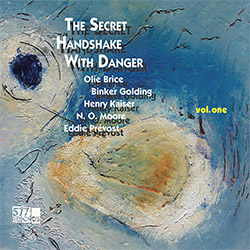


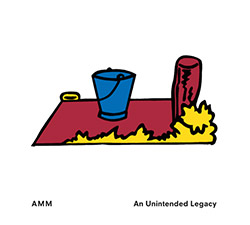





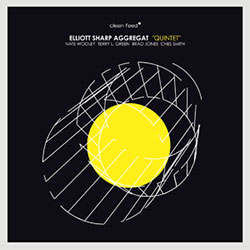

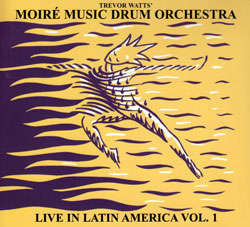
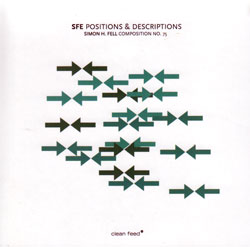
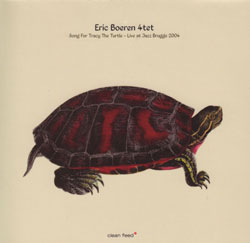
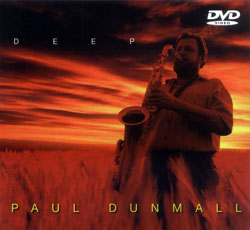
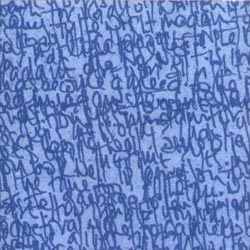
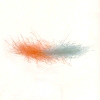
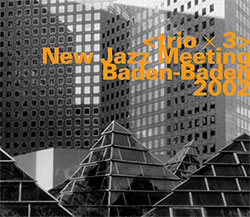


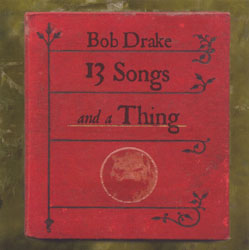

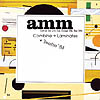
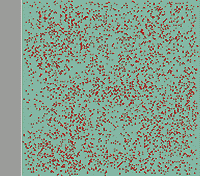
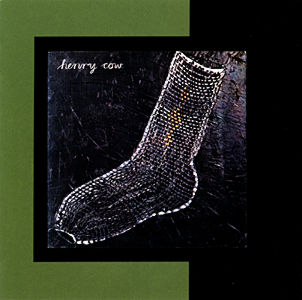














![Barker / Parker / Irabagon: Bakunawa [VINYL]](https://www.teuthida.com/productImages/misc4/35533.jpg)
![Blaser, Samuel / Marc Ducret / Peter Bruun: Dark Was The Night, Cold Was The Ground [VINYL 10-inch]](https://www.teuthida.com/productImages/misc4/35492.jpg)










![Warren, Kenny (Warren / Hoffman / Ellman): Sweet World [VINYL]](https://www.teuthida.com/productImages/misc4/35451.jpg)


![Blake, Ran / Dave Knife Fabris: Live Amsterdam 2006, First Visit [CD + POSTCARDS]](https://www.teuthida.com/productImages/misc4/35275.jpg)
![Sanna, Claudio: Compositori Sardi Contemporanei II [2 CDs]](https://www.teuthida.com/productImages/misc4/35317.jpg)












![Nevai, Nandor: <<The PRICE of FRONTIER>> Book 1: FULK [BOOK + 4 CDs]](https://www.teuthida.com/productImages/misc4/35464.jpg)
![Nevai, Nandor: <<The PRICE of FRONTIER>> Book 2: MARTIAL [BOOK + 4 CDs]](https://www.teuthida.com/productImages/misc4/35465.jpg)
![Nevai, Nandor: <<The PRICE of FRONTIER>> Book 3: JASSOM [BOOK + 4 CDs]](https://www.teuthida.com/productImages/misc4/35466.jpg)
![Nevai, Nandor: <<The PRICE of FRONTIER>> Book 4: HARD-WON [BOOK + 4 CDs]](https://www.teuthida.com/productImages/misc4/35467.jpg)






![DNS: Taking Big Bites Of The Khandas Three Cafes Deep [2 CDs]](https://www.teuthida.com/productImages/misc4/35334.jpg)




![Cleaver, Gerald: The Process [VINYL]](https://www.teuthida.com/productImages/misc4/34966.jpg)




![Alva Noto: HYbr:ID II [VINYL 2 LPs]](https://www.teuthida.com/productImages/misc4/35201.jpg)

![Baron, Derek / Luke Martin: Distinct and Concealed [CASSETTE + DOWNLOAD]](https://www.teuthida.com/productImages/misc4/35079.jpg)

![Lyle, Erica Dawn : Colonial Motels [CASSETTE + DOWNLOAD]](https://www.teuthida.com/productImages/misc4/35080.jpg)







![Alva Noto: HYbr:ID III [VINYL 2 LPs]](https://www.teuthida.com/productImages/misc4/35011.jpg)
![Kubisch, Christina / Trondheim Voices: Stromsanger 2022 For Six Voices And Electromagnetic Waves [VINYL]](https://www.teuthida.com/productImages/misc4/34628.jpg)








![Zurria, Manuel: Fame di Vento [3 CDs]](https://www.teuthida.com/productImages/misc4/35167.jpg)

![Granberg, Magnus / Nattens Inbrott / Skogen: Holde Traume, Kehret Wieder! [2 CDs]](https://www.teuthida.com/productImages/misc4/35038.jpg)
![Frey, Jurg: Outermost Melodie [2 CDs]](https://www.teuthida.com/productImages/misc4/35039.jpg)

![Pavone, Jessica: Reverse Bloom [VINYL]](https://www.teuthida.com/productImages/misc4/34895.jpg)




![Modney (Modney / Wooley / Gentile / Roberts / Pluta / Symthe / ...): Ascending Primes [2 CDs]](https://www.teuthida.com/productImages/misc4/34852.jpg)








![Elephant9 with Terje Rypdal: Catching Fire [VINYL 2 LPs]](https://www.teuthida.com/productImages/misc4/35355.jpg)
![Deerlady (Obomsawin, Mali / Magdalena Abrego): Greatest Hits [VINYL]](https://www.teuthida.com/productImages/misc4/34876.jpg)




![Haino, Keiji: Black Blues [2 CDs]](https://www.teuthida.com/productImages/misc4/35109.jpg)



![Surplus 1980: Illusion of Consistency [CD]](https://www.teuthida.com/productImages/misc4/35069.jpg)
![Staiano, Moe: Away Towards the Light [VINYL + DOWNLOAD]](https://www.teuthida.com/productImages/misc4/35037.jpg)




![Caveira (Gomes / Sousa / Abras / Ferrandini): Ficar Vivo [VINYL]](https://www.teuthida.com/productImages/misc4/34643.jpg)
![Gregg, J. J. / David Van Auken: Lunar Prairie [CD w/ DOWNLOAD]](https://www.teuthida.com/productImages/misc4/34611.jpg)

![Coultrain: Mundus [VINYL]](https://www.teuthida.com/productImages/misc4/32439.jpg)
![Mattin: Songbook #6 [VINYL]](https://www.teuthida.com/productImages/misc4/27317.jpg)
![Punkappella: Wake Up [7-inch VINYL]](https://www.teuthida.com/productImages/misc4/17519.jpg)
![Residents, The: WARNING: UNiNC.: Live And Experimental Recordings 1971-1972 [VINYL 2 LPs]](https://www.teuthida.com/productImages/misc4/31521.jpg)
![Coultrain: Phantasmagoria [VINYL]](https://www.teuthida.com/productImages/misc4/30142.jpg)
![Lennon, Sean Ono: Asterisms [VINYL]](https://www.teuthida.com/productImages/misc4/34517.jpg)

![Rotem Geffen: The Night Is The Night [VINYL]](https://www.teuthida.com/productImages/misc4/34631.jpg)
![Coley, Byron: Dating Tips for Touring Bands [VINYL]](https://www.teuthida.com/productImages/misc4/17906.jpg)

![Lost Kisses: My Life is Sad & Funny [DVD]](https://www.teuthida.com/productImages/misc4/lostKissesDVD.jpg)